
[ad_1]
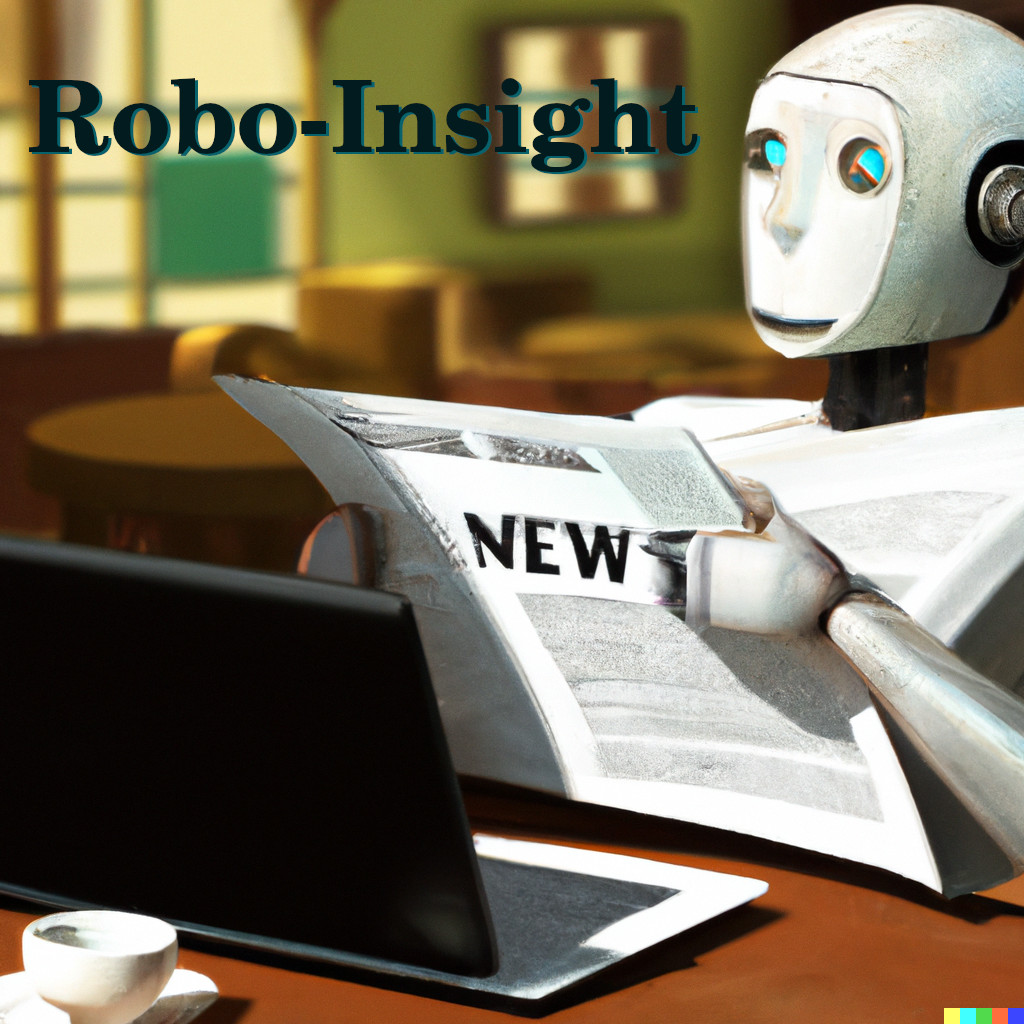
Supply: OpenAI’s DALL·E 2 with immediate “a hyperrealistic image of a robotic studying the information on a laptop computer at a espresso store”
Welcome to the sixth version of Robo-Perception, a robotics information replace! On this put up, we’re excited to share a spread of recent developments within the subject and spotlight robots’ progress in areas like medical help, prosthetics, robotic flexibility, joint motion, work efficiency, AI design, and family cleanliness.
Robots that may assist nurses
Within the medical world, researchers from Germany have developed a robotic system designed to assist nurses relieve the bodily pressure related to affected person care. Nurses usually face excessive bodily calls for when attending to bedridden sufferers, particularly throughout duties like repositioning them. Their work explores how robotic expertise can help in such duties by remotely anchoring sufferers in a lateral place. The outcomes point out that the system improved the working posture of nurses by a median of 11.93% and was rated as user-friendly. The analysis highlights the potential for robotics to help caregivers in healthcare settings, enhancing each nurse working circumstances and affected person care.
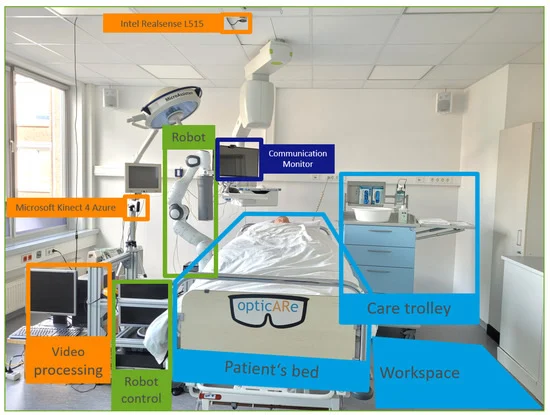
Association of affected person room used within the research. Supply.
Robots enhancing bionic hand management
Holding our focus healthcare-related, not too long ago researchers from quite a few European establishments have achieved a major breakthrough in robotic prosthetic expertise, as they efficiently implanted a neuromusculoskeletal prosthesis, a bionic hand linked on to the person’s nervous and skeletal programs, in an individual with a below-elbow amputation. This achievement concerned surgical procedures to position titanium implants within the radius and ulna bones and switch severed nerves to free muscle grafts. These neural interfaces offered a direct connection between the prosthesis and the person’s physique, permitting for improved prosthetic perform and elevated high quality of life. Their work demonstrates the potential for extremely built-in prosthetic gadgets to reinforce the lives of amputees by means of dependable neural management and cozy, on a regular basis use.
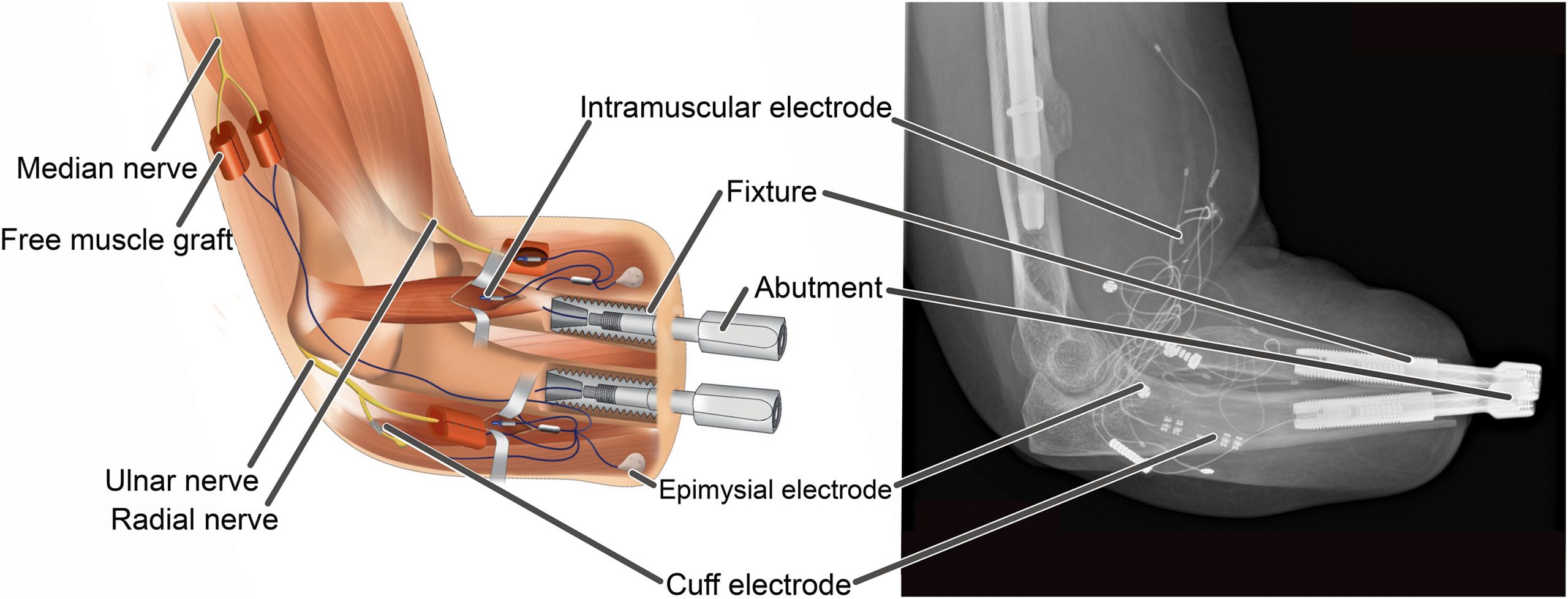
Schematic and X-ray of a totally built-in human-machine interface in a affected person. Supply.
Reinforcement studying in mushy robotics
Turning our focus to mushy robotics, researchers from the Heart for Analysis and Superior Research of the Nationwide Polytechnic Institut of Mexico and the Universidad Autónoma de Coahuila have proposed an method to make use of reinforcement studying (RL) for motor management of a pneumatic-driven mushy robotic modeled after continuum media with various density. This methodology entails a continuous-time Actor-Critic scheme designed for monitoring duties in a 3D mushy robotic topic to Lipschitz disturbances. Their research introduces a reward-based temporal distinction mechanism and a discontinuous adaptive method for neural weights within the Critic part of the system. The general purpose is to allow RL to manage the advanced, unsure, and deformable nature of soppy robots whereas guaranteeing stability in real-time management, a vital requirement for bodily programs. This analysis focuses on the appliance of RL in managing the distinctive challenges posed by mushy robots.

Distinct distortions of a cylindrical-shaped versatile robotic. Supply.
A teen-sized humanoid robotic
Shifting onto human-robot interactions, researchers from the College of Texas at Austin’s Human-Centered Robotics Laboratory have launched a teen-sized humanoid robotic named DRACO 3, designed in collaboration with Apptronik. This robotic, tailor-made for sensible use in human environments, options proximal actuation and employs rolling contact mechanisms on its decrease physique, permitting for intensive vertical poses. An entire-body controller (WBC) has been developed to handle DRACO 3’s advanced transmissions. This analysis affords insights into the event and management of humanoids with rolling contact joints, specializing in practicality and efficiency.
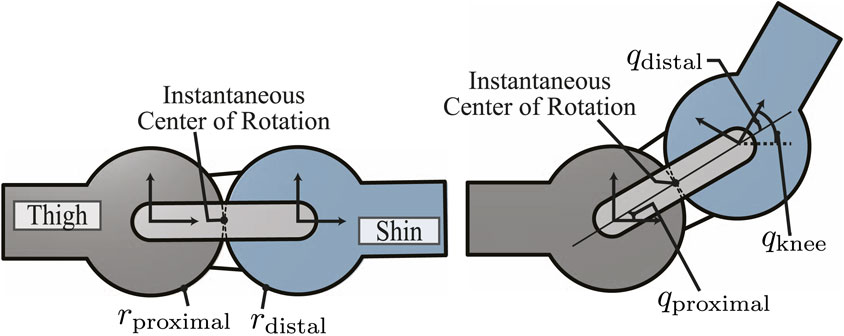
Diagram illustrating the rolling contact joint on the knee. Preliminary configuration (left) and post-angular displacement (proper). Supply.
Robots’ impacts on efficiency
Shifting our focus to psychology, not too long ago researchers from Technische Universität Berlin have investigated the phenomenon of social loafing in human-robot groups. Social loafing refers to lowered particular person effort in a staff setting in comparison with working alone. The research concerned individuals inspecting circuit boards for defects, with one group working alone and the opposite with a robotic companion. Regardless of a dependable robotic that marked defects on boards, individuals working with the robotic recognized fewer defects in comparison with these working alone, suggesting a possible prevalence of social loafing in human-robot groups. This analysis sheds gentle on the challenges related to human-robot collaboration and its affect on particular person effort and efficiency.
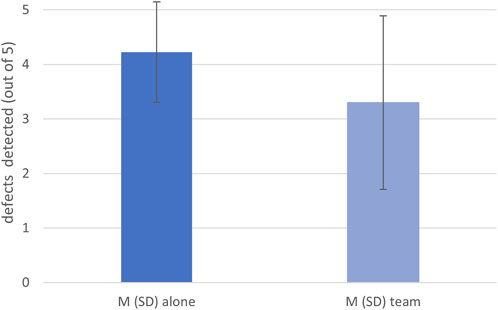
Outcomes of solo work vs. robotic work. Supply.
A robotic designed by AI
Altering our focus to robotic design, researchers from Northwestern College have developed an AI system that designs robots from scratch, enabling it to create a strolling robotic in seconds, a job that took nature billions of years to evolve. This AI system runs on a light-weight private pc, with out counting on energy-hungry supercomputers or massive datasets, providing the potential to design robots with distinctive varieties quickly. The system works by iterating on a design, assessing its flaws, and refining the construction in a matter of seconds. It paves the way in which for a brand new period of AI-designed instruments able to appearing immediately on the world for varied functions.
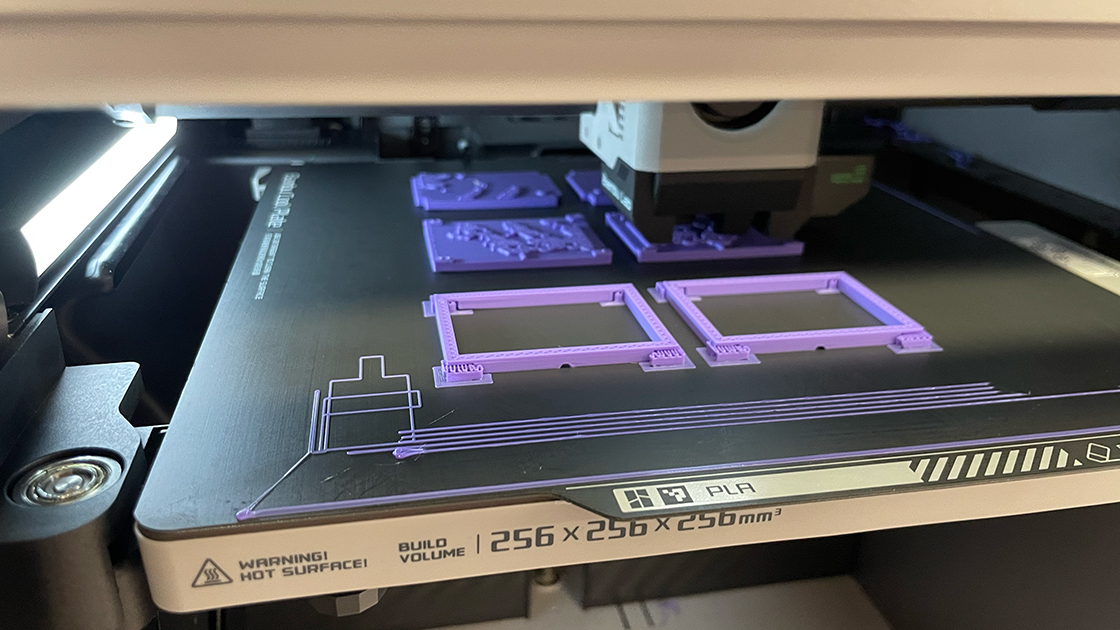
3D printer designing robotic. Supply.
A customizable robotic for family group
Lastly, within the subject of dwelling robotics, researchers from Stanford, Princeton, Columbia College, and Google, have developed TidyBot, a one-armed robotic designed to wash areas in accordance with private preferences. TidyBot makes use of a big language mannequin skilled on web knowledge to establish varied objects and perceive the place to place them, making it extremely customizable to completely different preferences. In real-world exams, the robotic can appropriately put away roughly 85% of objects, considerably enhancing family group. Whereas TidyBot nonetheless has room for enchancment, researchers imagine it holds nice promise for making robots extra versatile and helpful in properties and different environments.
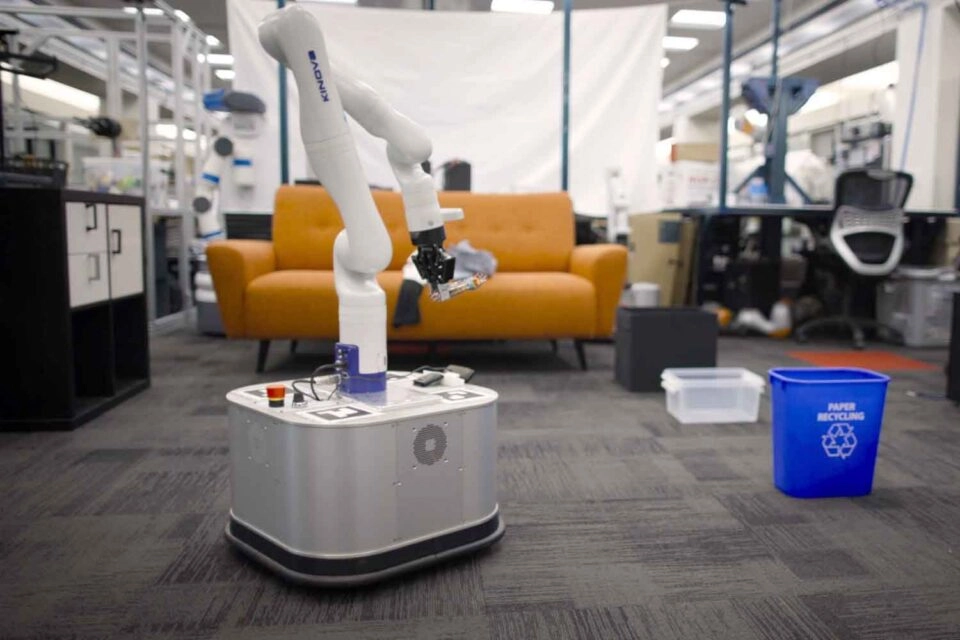
Tidybot in coaching. Supply.
The continued improvement in a mess of sectors highlights the pliability and steadily advancing character of robotics expertise, uncovering recent prospects for its incorporation into a variety of industries. The progressive enlargement within the realm of robotics mirrors unwavering dedication and affords a glimpse into the potential penalties of those developments for the instances forward.
Sources:
- Hinrichs, P., Seibert, Okay., Arizpe Gómez, P., Pfingsthorn, M., & Hein, A. (2023). A Robotic System to Anchor a Affected person in a Lateral Place and Scale back Nurses’ Bodily Pressure. Robotics, 12(5)
- Ortiz-Catalán, M., Zbinden, J., Millenaar, J., D’Accolti, D., Controzzi, M., Clemente, F., Cappello, L., Earley, E. J., Enzo Mastinu, Justyna Kolankowska, Munoz-Novoa, M., Stewe Jönsson, Njel, C., Paolo Sassu, & Rickard Brånemark. (2023). A extremely built-in bionic hand with neural management and suggestions to be used in each day life. Science Robotics
- Pantoja-Garcia, L., Parra-Vega, V., Garcia-Rodriguez, R., & Vázquez-García, C. E. (2023). A Novel Actor—Critic Motor Reinforcement Studying for Continuum Smooth Robots. Robotics, 12(5)
- Bang, S. H., Gonzalez, C., Ahn, J., Paine, N., & Sentis, L. (2023, September 26). Management and analysis of a humanoid robotic with rolling contact joints on its decrease physique. Frontiers.
- Cymek, D. H., Truckenbrodt, A., & Onnasch, L. (2023, August 31). Lean again or lean in? exploring social loafing in human–robotic groups. Frontiers.
- Prompt evolution: AI designs new robotic from scratch in seconds. (n.d.). Information.northwestern.edu.
- College, S. (2023, October 3). Robotic supplies personalised room cleanup. Stanford Information.
Shaunak Kapur
is a part of Robohub’s volunteering staff, and soon-to-be senior in highschool (Texas). Shaun has been captivated by robotics from a younger age.

Shaunak Kapur
is a part of Robohub’s volunteering staff, and soon-to-be senior in highschool (Texas). Shaun has been captivated by robotics from a younger age.
[ad_2]